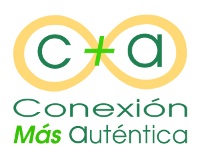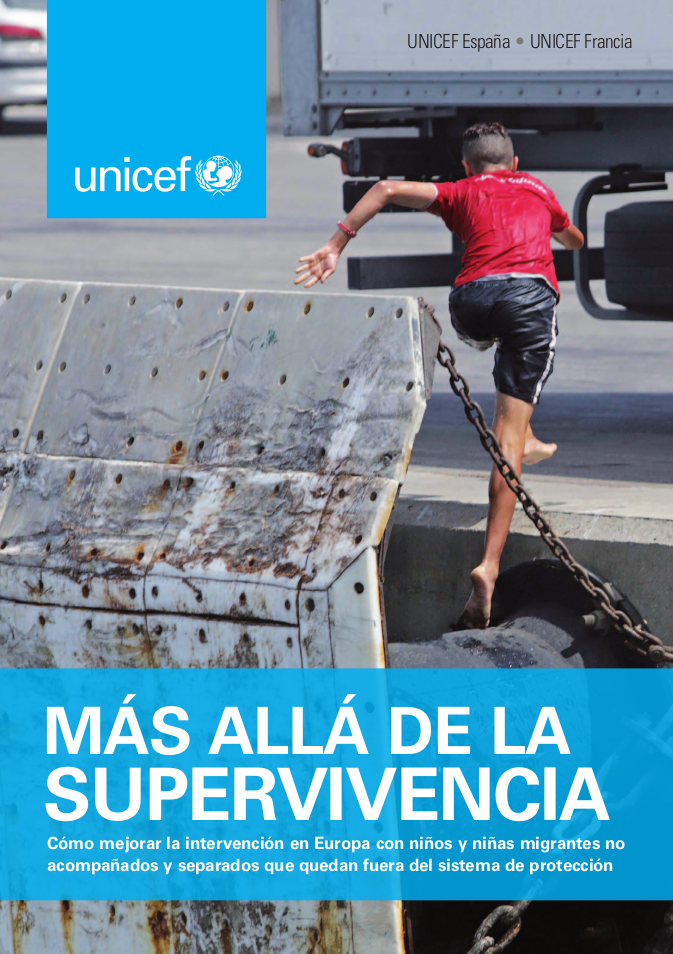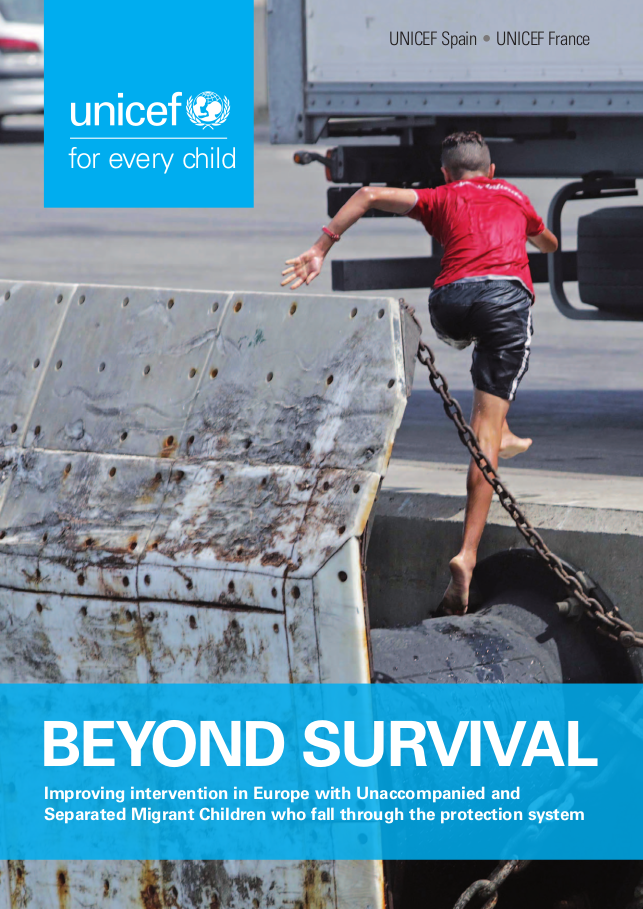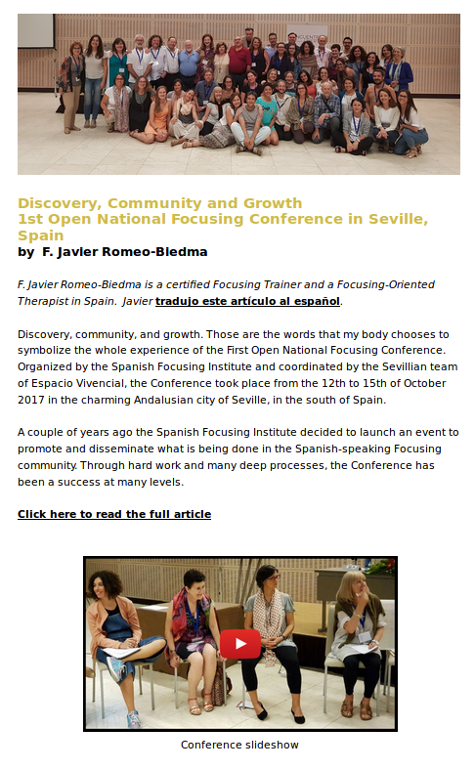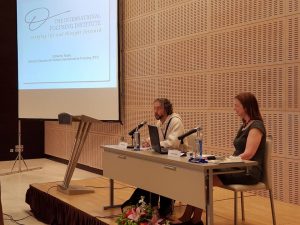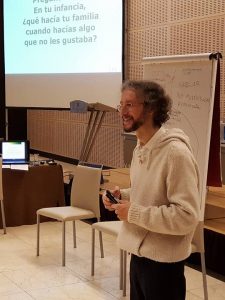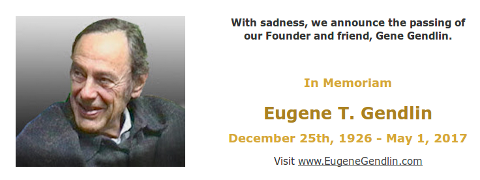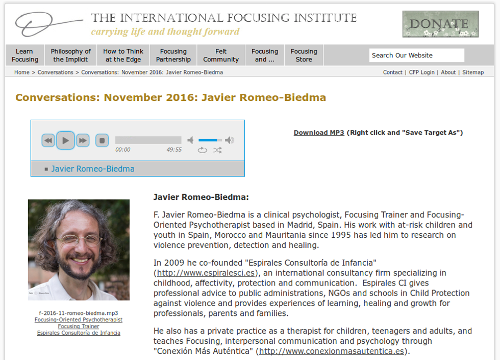Label: Experiences
Artículo “We accompany with the person that we are” within the initiative “Renewing from within”
15 September 2021.
Tags: Agenda actual, Interpersonal communication, Education, CI Spirals, Focusing, My Classifieds, For parents, Psychotherapy, Therapy, Experiences
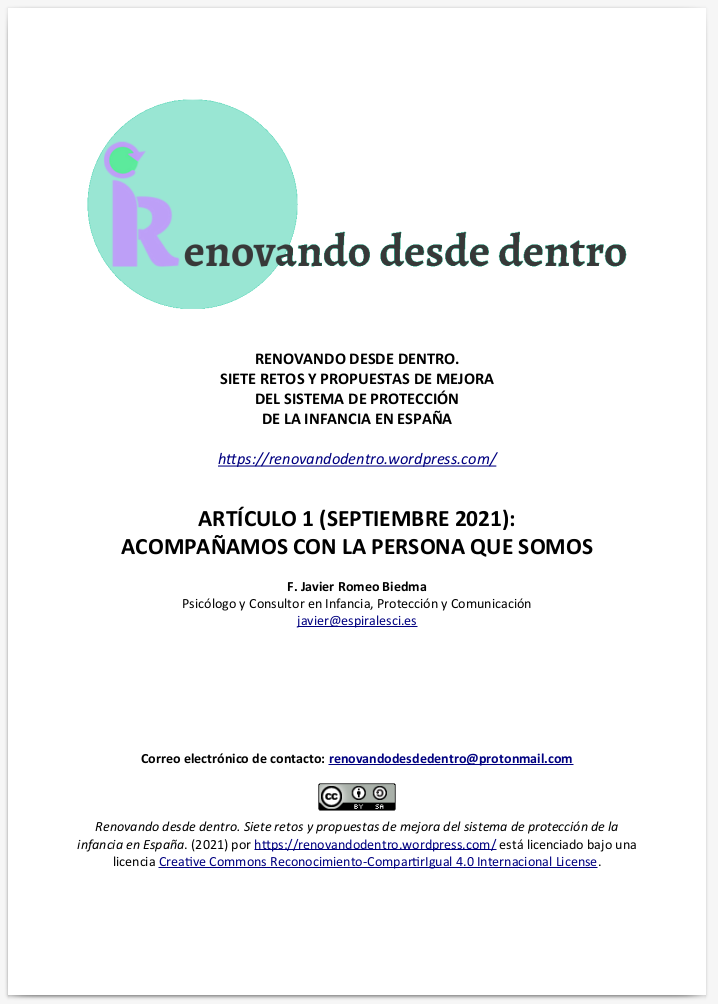 Part of my work as a psychologist and companion in personal and organizational processes consists of finding ways to communicate complex messages through metaphors and analogies.. In the initiative “Renewing from within”, that I already presented in this other post, we set out several challenges and proposals to improve the child protection system, girls and adolescents in Spain (And in the rest of the world).
Part of my work as a psychologist and companion in personal and organizational processes consists of finding ways to communicate complex messages through metaphors and analogies.. In the initiative “Renewing from within”, that I already presented in this other post, we set out several challenges and proposals to improve the child protection system, girls and adolescents in Spain (And in the rest of the world).
This month I have collaborated with the article “We accompany with the person that we are”, that uses analogies between the measures we are taking in the face of the pandemic and the aspects we need to take care of when accompanying children, girls and adolescents who have suffered a lot. It is a way of bringing awareness to our way of being and doing, both personally and professionally.
And you will see that, as usual, I insist on the importance of training in trauma and remember the value of Focusing, I find it a very useful tool on a day-to-day basis..
I would love to know what you think and how you live it.
For a conscious use of social networks: “Digital Minimalism” of Cal Newport
14 September 2021.
Tags: Other Texts, Experiences
This summer I needed to disconnect, and i got it. on a mental level, but also electronically. And it has been largely thanks to reading Digital Minimalism, of Cal Newport, an author whose line of thought I admire, I try to put into practice and I recommend.
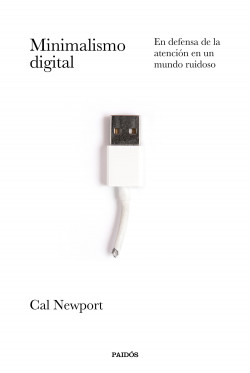 through this book, which has the suggestive subtitle “In defense of care in a noisy world”, I have shaped the kind of relationship I want to have with social media: use them consciously, taking advantage of the possibilities of connection and contact with other people and with interesting organizations, but without losing control of my time, of my care or my emotional well-being. It is written in prose that combines rigorous research exposition with entertaining anecdotes that make key points concrete..
through this book, which has the suggestive subtitle “In defense of care in a noisy world”, I have shaped the kind of relationship I want to have with social media: use them consciously, taking advantage of the possibilities of connection and contact with other people and with interesting organizations, but without losing control of my time, of my care or my emotional well-being. It is written in prose that combines rigorous research exposition with entertaining anecdotes that make key points concrete..
And the best thing is that it is not about leaving all social networks, but to limit its use to adequate levels for our brain. The book begins with a proposal 30 days without social networks and then gradually introduce them, in a manner appropriate to our interests. I have been all August without opening my accounts Twitter and of LinkedIn and, Although it was hard at first, I have arrived renewed to September. Now I open them two or three times a week, with intention, seeing the topics that really interest me, and I have already discovered several interesting initiatives without suffering from the tense messages of the “trending topics”.
And the best thing is that Cal Newport does not stay in “stop the inappropriate use of social networks”, but it also advances four guidelines to take advantage of the time that is freed up for us:
- Take the opportunity to be alone, at internal connection time.
- leave the “likes” as a form of relationship and replace them with direct conversations (in person, by phone or video call), in real interactions more adapted to our emotional capacities.
- Cultivate healthy leisure, that gives us energy instead of taking it away.
- Paying conscious care to our attention, which is limited. Instead of wasting it on activities that do not bring us much, concentrate it on what makes us grow and take care of each other.
So if you see that I use social networks less, you will know that I am taking care of my attention. And if you want us to discuss something, Better by phone or in person than by social networks, do you seem to?
Good start to the school year,
A personal view on “Beyond survival. How to improve the intervention in Europe with unaccompanied and separated migrant children who remain outside the protection system ”, by F. Javier Romeo and Pepa Horno for UNICEF
20 October 2020.
Tags: Agenda actual, CI Spirals, Focusing, In English, My Classifieds, Other Texts, Experiences
[Click here to read this post in English.]
The document Beyond survival. How to improve intervention with unaccompanied and separated migrant children who are left outside the protection system, what Pepa Horno, my partner in Childhood Consulting Spirals, and I have written for UNICEF Spain and UNICEF France, just posted, and is available in two versions:
- Download the original English version of Beyond Survival. Improving intervention in Europe with Unaccompanied and Separated Migrant Children who fall through the protection system.
- Download the Spanish translation, Beyond survival. How to improve intervention with unaccompanied and separated migrant children who are left outside the protection system.
This is a technical publication that has to do with Child Protection, social intervention and human rights. In fact, We have the ideas and conscience of about a hundred professionals in the International Workshop in December 2019 en Madrid, that I helped facilitate (we explain more in our CI Spirals blog post). However, it is also a very personal document for me.
On the one hand, children, Unaccompanied and separated migrant girls and adolescents have a very special place in my heart. I worked in Morocco for several years with children, girls and adolescents living on the streets and I know the difficulties they have there, and what makes them risk their lives for the possibility of having a better future. I have also worked for several years in Madrid with adolescents at social risk, and many of them were migrant boys and girls with no family references, so I have accompanied their steps in the difficulties they encountered to build a good future in Spain. And to this day I still enjoy being able to speak with them in Moroccan Arabic, a language that I really like. I hope that this document helps professionals and also the general public to have a compassionate look towards these children., and adolescents, and to worry about their welfare. (You can read more about my career path on my LinkedIn profile).
On the other hand, currently this is a very sensitive issue, due to multiple factors. As lead editor, I have repeatedly used do Focusing as a process for structuring ideas and finding the right formulations. The keys to more protective narratives need to come from a consciousness firmly rooted in the body. Hope this brings clarity and also a deeper perspective to this whole topic, especially if the more intricate parts manage to be a little more explicit.
In conclusion, it has not only been a professional challenge, but also a very personal process. I hope you enjoy it.
A personal view on “Beyond Survival. Improving intervention in Europe with Unaccompanied and Separated Migrant Children who fall through the protection system”, by F. Javier Romeo and Pepa Horno for UNICEF
20 October 2020.
Tags: Agenda actual, CI Spirals, Focusing, In English, My Classifieds, Other Texts, Experiences
The document Beyond Survival. Improving intervention in Europe with Unaccompanied and Separated Migrant Children who fall through the protection system, that Pepa Horno, my colleague at Espirales Consultoría de Infancia, and me have written for UNICEF Spain and UNICEF France, has just been published, and it is available in two versions:
- Download the original version in English of Beyond Survival. Improving intervention in Europe with Unaccompanied and Separated Migrant Children who fall through the protection system.
- Download the translation into Spanish, Beyond survival. How to improve intervention with unaccompanied and separated migrant children who are left outside the protection system.
This is a technical publication that has to do with Child Protection, social intervention and human rights. In fact, we counted with the ideas and awareness of nearly a hundred professionals at an International Workshop in December 2019 in Madrid, that I co-facilitated (we explain more about it in our blog post in Espirales CI). However, it is also a very personal document for me.
On the one hand, Unaccompanied and Separated Migrant Children are very dear to me. I worked in Morocco for several years with children in street situation and I know of the difficulties there, what makes them risk their lives for the possibility of a better future. I also worked for several years in Madrid with at-risk youth, and many of them were unaccompanied migrant children, so I accompanied their steps in the difficulties of building a good future for themselves in Spain. And I still enjoy being able to speak with them in Moroccan Arabic, a language that I like very much. I hope that this document will help other professionals and the general public to have a compassionate regard to these children, and to care for their wellbeing. (More about my career path in my LinkedIn Profile).
On the other hand, this is currently a very sensitive issue, due to several factors. As main writer, I have used extensively Focusing with myself as a process to structure the ideas, and to find the adequate wording. The clues for more protective narratives need to come from an embodied awareness. I hope that this will bring clarity and also a deeper perspective to all this subject, with some of its intricacies made a bit more explicit.
In conclusion, it has been not only a professional challenge, but also a very personal process. I hope that you will enjoy it.
Video series for children, girls and adolescents made for UNICEF Spain
22 July 2020.
Tags: CI Spirals, Focusing, My Classifieds, My videos, For Teens, For boys and girls, For parents, Videos, Experiences
Since the beginning of the pandemic, many children's organizations have struggled to create resources. From Spirales Consultoría de Infancia we have prepared several different materials.
In this blog post I want to share some videos that are also relevant to what I am sharing here, for many reasons.
- They put forward messages that are clear and broad enough to discuss with children, girls and adolescents on the COVID-19 pandemic, so that they have clues about what is happening to them.
- They propose a work on body awareness: from the model of the three intelligences to coming into contact with the breath, with the tension or with the different sensations. It is not Focusing, but aim for that sensitivity.
- They are in Spanish, but also in French and Moroccan Arabic. I was excited to use in these videos these two languages that have served me so much to communicate when I lived in Morocco and with migrant adolescents in Spain.
I leave you the videos below:
I hope you find them interesting.
Listen and be present in times of confinement, my experience on the phone at COP Madrid
13 July 2020.
Tags: Interpersonal communication, Psychotherapy, Therapy, Experiences
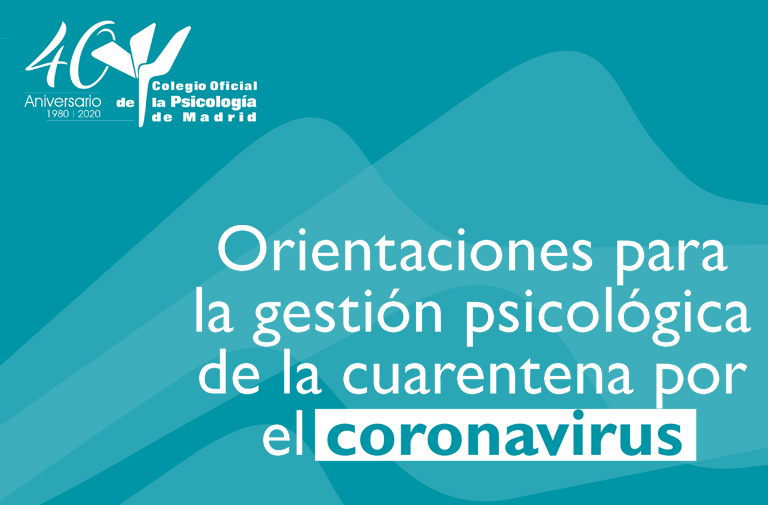 A few days ago I received the certificate as a volunteer from the telephone service of the Official College of Psychology of Madrid. In these moments of “new normal” It has been a reminder of the difficult moments of confinement, between March and May of this year 2020. And from the calm (provisional) actual, It seems like a good time to process what I have experienced. And I have four words to symbolize it: commitment, resistance, humility and conscience.
A few days ago I received the certificate as a volunteer from the telephone service of the Official College of Psychology of Madrid. In these moments of “new normal” It has been a reminder of the difficult moments of confinement, between March and May of this year 2020. And from the calm (provisional) actual, It seems like a good time to process what I have experienced. And I have four words to symbolize it: commitment, resistance, humility and conscience.
When the lockdown started my basic question was “How can I contribute?”. From Spirales Consultoría de Infancia we have received many requests that we have been able to attend to, but that will be the reason for another blog post. But, at the same time, there was another dimension, from volunteering, what did i want to offer. Between the many services and resources what did he offer Official College of Psychology of Madrid, Telephoning people who need it suited me very well. From there, I have felt honored to belong to this organization that has been close to the citizenry as far as its resources have allowed.. This for me has to do with psychology, apart from being my profession, also supposes a commitment personal towards the well-being of individuals and communities. We have seen the commitment of many people and many professional groups, and this has been ours: offer listening and support to those who need it.
The beginning of the telephone attention was intense for me. The calls weren't many, but long and complex. From mourning the death of people to serious mental health difficulties. And my admiration for the ability resistance of every person I cared for. I like to say “resilience”, that word that we like so much in psychology. But “resilience” it implies “to resist” and “remake”, and in a single phone call per person I only got to see the part of “to resist”. When I see the current relaxation in the face of sanitary measures, I remember each person that I attended, with your level of suffering, and I wonder how they will live it. Are they feeling the frustration that it was not done better at the time? Are they enjoying some rest and contact? My memory is with those people who have had such a bad time, and that they will have to find the strength to continue resisting and, hopefully, to reach resilience and rebuild.
All these experiences have awakened in me a lot humility. The coronavirus is generally being a call to conscience, that as human beings we consider how we are doing in the world and look for ways to improve. For me, as a psychologist, all these experiences are assuming a humility cure. There is so much suffering that I will not be able to attend, but whoever arrives, I arrive. There are people with so many difficulties in their mental health that I do not know how to accompany, and I have to continue training. And there are so many things to improve that sometimes I find it hopeless, but my commitment is to continue cultivating hope.
Y, once again, the experience has been for me a call to the consciousness. Faced with human suffering, it is necessary to be not only as a professional, but also as a person. Human contact, how much we have missed during confinement, it is a source of well-being (when it occurs in healthy relationships). The psychological care has been for me to be there present, with empathy and also with my vulnerability (but taking charge of what I live).
And all these experiences now bring me gratitude, both to COP Madrid, especially those who have led the process, as those who have had the courage to call and trust those who attended them. My appreciation to all those people for their courage.
And my best wishes for this new phase.
my article “Discovery, Community and growth” Focusing on the Open National Meeting in Seville 12 to the 15 October 2017
26 November 2017.
Tags: Agenda actual, Focusing community, Focusing, Focusing in Spain, Focusing international, In English, My Classifieds, Textos Focusing, Experiences
“Discovery, Community and growth. Those are the words you choose my body to symbolize the full experience of the First National Meeting Focusing Open. Organized by the Spanish Institute Focusing and coordinated by the Sevillian team Experiential Space, The meeting took place 12 to the 15 October in the charming Andalusian city of Seville, in the south of Spain”.
So begins my article in which I describe my experience for the In-Focus, the newsletter of the International Institute Focusing November 2017. In the space acotaron I have tried to reflect the international community for focusing the activities that we have shared in the First National Open Meeting Focusing, while I also wanted to reflect, in the tradition of Focusing and Experiential Philosophy, what has been my experience. From here I want to express my appreciation to Focusing Spanish Institute for convening this fantastic event, to the Experiential Space team led by Francisco Sivianes by coordinate and each speaker and each participant has made it possible, It has been an unforgettable experience.
- Read article “Discovery, Community and Growth. The 1st Open National Focusing Conference in Seville” in the original English version.
- Read the article translated into Spanish with the title “Discovery, Community and growth: the First National Open Focusing in Seville, Spain”.
I left for this blog more personal aspects, as I experienced the honor of Catherine Torpey able to present, who came to Seville to present the international dimension of International Focusing Institute (GIRLS) as Executive director of the same. For me, I collaborate with Committee Membership for more than a year ago, It is a satisfaction that community Focusing on Spain (also participants from other countries) you can see first hand to Catherine and all that makes the International Focusing Institute.
It was also a privilege to provide my workshop “Focusing and experiential work with violence”, in which I could share with people from five different nationalities some of the keys to use bodily sensations and focusing process to identify violence in a more complete and create security in our lives, an introductory version of my workshop “Focusing, body and safety: Focusing for the prevention of violence”.
There are many more memories, as each of the workshops I attended, or general conference, or the people I met (new or deeper)… You can see more about the environment of the different moments in the photographs taken by Francisco Sivianes (Focusing trainer and director of Experiential Space): of Thursday 12 October, of viernes 13 October and sábado 14 October of 2017.
This presentation is also available by Rosa Galiano with photos of his, Francisco Sivianes and others and published in the International YouTube channel Focusing Institute:
He has been an inspiration and I hope that also inspire you.
Celebrating the life of Gene Gendlin and honoring his death
2 May 2017.
Tags: Focusing community, Eugene Gendlin, Focusing, Focusing in Spain, Focusing en Madrid, Focusing international, Experiences, Webs
Eugene (“Gene”) Gendlin has died yesterday 1 May 2017 ninety years old, and me, as the entire community of Focusing, I am moved by his death, and while grateful for all your contributions.
Eugene Gendlin was born 25 December 1926 in Vienna, Austria, and he escaped from Nazi persecution achieving reach US 1939. born American, He ended up graduating in philosophy and earned his doctorate after working for more than a decade in collaboration with Carl Rogers at the University of Chicago. The result of his dual training as a philosopher and as a psychotherapist, their contribution is extensive.
Gendlin always insisted that there had “created” the Focusing, a process of self-awareness and emotional and psychological healing through bodily sensations, but only “he had discovered a few steps to make the process more accessible”. It is now a tool used in psychotherapy and in many other areas. And all his discoveries are accompanied by a strong intellectual scaffolding, Philosophy of the Implicit.
In 1985 created what is now the International Focusing Institute (The International Focusing Institute) to give continuity to all these lines of work, which brings together more than 2000 professionals and supporters around the world, and where he has bequeathed his entire library that can be accessed online (the Gendlin Online Library).
Despite his advanced age, health problems and the death of his wife Mary Hendricks-Gendlin two years ago, Gendlin had remained active within its capabilities, writing articles and participating in training by phone.
In my case, Aside from having read his books and articles, I have had the pleasure and honor to participate in several “Conversations from the edge with Gene [Gendlin] In y [Weiser Cornell]”, the latter organized (watch my ideas September Conversation–October of 2016). For me it was a privilege to talk to him directly, with its warmth and brilliance despite their pain and difficulties, perceiving their interest in each person and the world, and very interested in knowing how his legacy continued. And I was impressed by his presence when he accompanied me on a process of focusing on one of the last conversations.
International Focusing Institute has enabled a special page that honor the memory of Gene Gendlin (www.EugeneGendlin.com), and from here I invite you to participate, Read other people's comments or add your own experiences. I certainly feel a lot of sadness at this loss, while I celebrate having met Gene Gendlin's work over the years and have been able to talk to him live on several occasions. I feel part of his legacy, and I hope to convey with warmth, inspired by him.
In celebration and mourning,
Upgrade 14 August 2017: I wrote an entry about three tributes to Gene Gendlin in which I participated, which completes the shared dimension at Community level.
My interview “Focusing and how to work experientially with issues of violence” International Focusing Institute
14 November 2016.
Tags: Agenda actual, CI Spirals, Focusing, Focusing international, In English, My Classifieds, Psychotherapy, Therapy, Textos Focusing, Experiences
A deep sense of honor and a clear feeling of humility and shyness arise in me as I share this interview. I can clearly feel the responsibility of talking about the work I do on “Focusing and how to work experientially with issues of violence” (“Focusing and how to work experientially with violence”), as the English title of the conversation says. It is an important topic for me (I work a lot on it through Spiral Consulting Children, the consultancy specialized in Child Protection of which I am a founding partner), and trying to convey all the nuances is always a challenge.
International Focusing Institute (The International Focusing Institute, the organization that coordinates at an international level the activities related to training and dissemination of Focusing) promotes “Conversations” (English) with Focusing professionals from around the world. Serge Prengel, a Focusing Trainer and Focusing-Oriented Psychotherapist whom I met at the International Focusing Conference 2016 Cambridge (United Kingdom), acts as host, and he does it in a very Focusing way - with an empathic reflex, with pauses, allowing new ideas to emerge and unfold at their own pace–.
In this “Conversation” you will find that we discuss topics such as the following:
- Violence as a stopped process (“Something would have to have happened to move the situation forward, but it didn't happen, so that the process is blocked”).
- Damage defines violence, and the damage is experienced from the body.
- Find a “handle” (“handle”) for violence (identify her) is the first step to get out of it: For this, it is necessary to become aware of the cultural patterns that make us normalize violence.
- The role of power in violence.
- Affection coupled with care as a way to avoid violence –and the bodily dimension that can be achieved through Focusing–.
- Detection and intervention in cases of violence in Child Protection.
- A message of hope regarding the possibilities of healing and transforming violence, and Focusing as a magnificent tool to do it.
And if you want to experience how to transform the experience of violence from the body through Focusing, I am available for specific sessions the for psychotherapy in Madrid.
I hope you can find some ideas that inspire your own experiential work on violence, and I would love to hear your reactions to it.
My interview about “Focusing and how to work experientially with violence” for The International Focusing Institute
14 November 2016.
Tags: Agenda actual, CI Spirals, Focusing, Focusing international, In English, My Classifieds, Psychotherapy, Therapy, Textos Focusing, Experiences
A deep sense of honour and a distinct feeling of humility and shyness come to me when I share this interview. I can feel clearly the responsibility of talking about the work I do about “Focusing and how to work experientially with violence”, as the title of the conversation says. It is an important subject for me (I work a lot about it through Spiral Consulting Children, the international consulting firm specializing in Child Protection I co-founded), and trying to convey all its nuances is always a challenge.
The International Focusing Institute (the organization that coordinates internationally Focusing activities related to training and diffusion) fosters bimonthly “Conversations” with Focusing professionals all over the world. Serge Prengel, a Focusing Trainer and Focusing-Oriented Psychotherapist that I met at the International Focusing Conference 2016 in Cambridge (UK), acts as the host, and he does so in a very Focusing way –reflecting, with pauses, letting new ideas appear and develop in their own time.
In this “Conversation” you will find discussed issues like the following ones:
- Violence as a stopped process (“Something should have happened to carry forward a situation, and it did not occur, so the process gets stuck”).
- Harm defines violence, and harm is lived from the body.
- Finding a handle for violence (identifying it) is the first step out of it: becoming aware of our cultural patterns that normalize violence.
- The role of power in violence.
- Affection linked to care as a way to avoid violence –and the bodily dimension that can be reached through Focusing.
- Violence detection and intervention in Child Protection.
- A message of hope about healing and transforming violence, and Focusing as a wonderful tool to do it.
I hope that you will find an idea or two that might inspire your own experiential work about violence, and I will love to hear from you about it.
Read this entry in Spanish (although the interview itself is in English).
